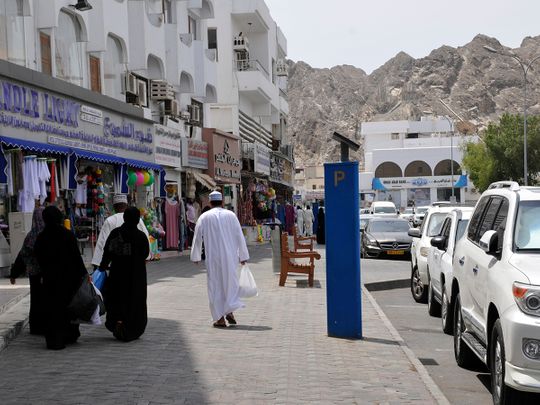Oman will end its coronavirus lockdown on Saturday as cases of the deadly virus have started to decline.
Lockdown hours were reduced at the start of August to 10pm to 4am, having been set at 5pm to 4am originally.
From Saturday, all night-time lockdown measures will be lifted and people will be allowed to move around the country, Oman’s Supreme Committee on Covid-19 said on Thursday.
The first person died of Covid-19 in Oman on April 1, 2020. Since then more than 4,000 people have died and there have been more than 300,000 cases.
The sultanate has been in and out of lockdown since April 10 last year.
New cases have been declining since the peak of Oman’s third wave in June, from 2,529 cases a day to 173 on Wednesday.
The committee said people who were not vaccinated would be banned from entering indoor public places such as restaurants, malls, shops and offices from September 1.
Some have criticised the decision, claiming it is a breach of their civil rights.
“It is outrageous. They are forcing us to vaccinate when we don’t want to do it,” Omani mother of two Jamila Al Jardani, 36, told The National.
“This is against our civil liberty and it was really shocking to read in the news of the new decision.
“Whether to vaccinate or not must remain our private decision and we should not be denied to go wherever we please just because we don’t want a vaccination.”
Businesspeople also objected to the decision, saying it would restrict their trade.
“Less than half of the population is vaccinated,” said Ahmed Haider, the Indian owner of a restaurant in Seeb, Muscat.
“That means half of all of customers will not be able to do shopping or eat outside and that will reduce our income.”
Oman said this week that about 2.1 million of its 4.5 million population have had at least one vaccine dose.
Others welcomed the decision, saying it was about time the government made a firm decision about vaccination.
“I congratulate the government for making this decision,” British resident Jane Howard, 42, told The National.
“We are mingling with people in malls and restaurants and half of them probably did not vaccinate and they go on coughing all over the place to infect others.
“This decision will make a lot of people feel secure knowing that it is safer to be out there.”
The committee also changed entry requirements for the sultanate. From September 1, all entrants over 18 must have had two doses of a coronavirus vaccine approved in Oman, which are those produced by Pfizer-BioNTech, Oxford-AstraZeneca, Sinovac, and the Russian-made Sputnik V.
Visitors and residents will also have to produce a PCR test result and undertake another at their point of entry.
The sultanate’s Ministry of Education also ordered all pupils to go back to school in the new academic year, which is expected to start in September.
This month, Oman started a campaign to vaccinate all schoolchildren from the age of 12.
“The vaccination of schoolchildren will continue in campuses to make sure all students will be vaccinated while they are attending classes, the committee responsible for Covid-19 said on Thursday.
Parents were happy with the decision, saying online classes were not really working.
“My children had difficulty, especially my 7-year-old son, attending classes at home,” said Omani civil servant Aisha Al Faraj, 39.
“They could not follow up what the teachers were saying and sometimes there would be disruption with the internet, too. I am happy that they are now going back to physical classes




